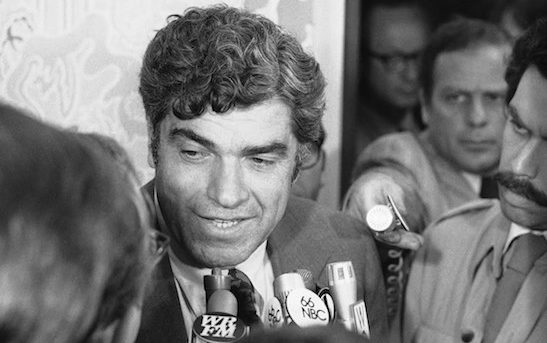Is This Any Way to Run a City’s Schools?
Leaked CTU Proposals Won’t Do Anything to Improve Schools’ Poor Performance

‘We Have the Ability, in a Sense, to Elect Our Own Boss’
Nearly a decade has passed since the end of the last national recession, and this year real growth of the entire U.S. economy is currently projected by the Congressional Budget Office to surge to 3.3%, or more than in any year since 2005.
In light of this good news, one might expect the fiscal outlook of the 50 states to be improving. Unfortunately, for the most part this simply isn’t so.
The fact is, in 2018 a majority of states have balance sheets that, without major reforms, will grow ever more unsustainable even in the unlikely event that the good economic times keep rolling uninterruptedly for the next 10 years.
A key reason for pervasive and massive budget shortfalls is that roughly two-thirds of the 50 states legally force government employers, under certain conditions, to negotiate with union officials over public servants’ terms of employment.
Forced-Dues Privileges Wielded to Amass Huge Political War Chests
And under all these statutes, whenever public employers are forced to bargain with a union, they are also forced to grant it “exclusivity.”
In plain English, exclusivity means Big Labor officials get to codetermine pay, benefits, and work rules for employees who refuse to join the union as well as for those who do.
Meanwhile, in the nearly two dozen states where government-sector forced union dues and fees are still authorized and promoted, union chiefs funnel a large portion of the conscripted money they collect from civil servants into efforts to influence the outcomes of state and local elections.
And the outcomes of those elections often determine who represents the public at the bargaining table.
This corrupt interplay of union monopoly bargaining and Big Labor forced-dues politicking was once cogently capsulized by the late Victor Gotbaum, longtime head of the extraordinarily powerful, Manhattan-based District Council 37 of the American Federation of State County and Municipal Employees.
In a feature article for New York magazine, journalist Ken Auletta cited Mr. Gotbaum’s observation: “We have the ability, in a sense, to elect our own boss.”
“In city after city and state after state, union bosses wield their privilege to force public employees to pay union dues, or be fired, to amass huge war chests, with which they support and oppose candidates for office,” explained National Right to Work Committee Vice President Greg Mourad.
Ten States With Highest Debt Per Capita All Lack Right to Work Protections
Mr. Mourad continued:
“Big Labor thus determines who sits on one side of the bargaining table, and heavily influences who sits on the other. Meanwhile, taxpayers have no seat at all.
“It’s been 43 years since Victor Gotbaum made his famous boast, which was also a tacit admission of a terrible conflict of interest.
“But his observation regarding how monopolistic unionism actually works in the public sector is even more pertinent today than when he first uttered it.
“Data published by the federal government and nonpartisan private watchdogs such as the Washington, D.C.-based Tax Foundation,” continued Mr. Mourad, “reveal an extremely close correlation between forced financial support for government unions and greater public indebtedness.
“According to a table appearing in the Tax Foundation’s Facts & Figures 2018, for example, the 10 states with the greatest absolute state and local debt per capita are New York, Massachusetts, Connecticut, Alaska, Illinois, Washington, New Jersey, Rhode Island, California and Hawaii.
“Not one of these 10 states protects the Right to Work of public employees,” said Mr. Mourad.
“On the other hand,” he added, “in nine of the 10 states with the lowest state and local debt per capita, public servants may not be fired for refusal to pay dues or fees to a union.”
Union Bigwigs Stoke State And Local Politicians’ Fiscal Imprudence
“Excessive spending, taxation and debt are endemic to governments everywhere, but there are large, measurable differences between states that have handed forced- dues privileges to government union bosses, and states that have resisted the pressure,” continued Mr. Mourad.
“Big Government is a big enough problem already.
“Why compound the problem with laws that help union bigwigs stoke politicians’ fiscal imprudence?”

Leaked CTU Proposals Won’t Do Anything to Improve Schools’ Poor Performance

Wherever Big Labor wields the power to collect forced union dues, union bosses funnel a large share of the confiscated money into efforts to elect and reelect business-bashing politicians. Employment growth tends to lag as a consequence.

Members Insist They Keep Pro-Right to Work Campaign Promises